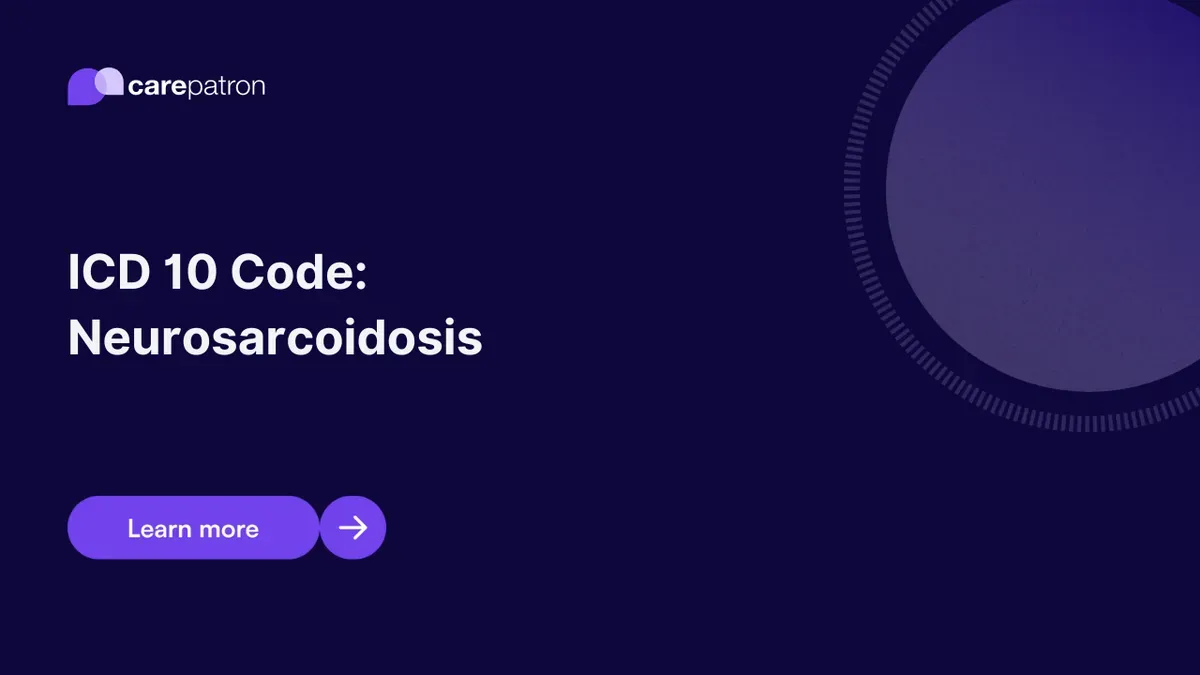
Neurosarcoidosis ICD-10-CM Codes
Explore this guide on Neurosarcoidosis ICD-10-CM codes. Learn about the specific codes, clinical descriptions, and billing implications.
Use Code
Commonly asked questions
Neurological symptoms of neurosarcoidosis can vary but often include headaches, vision problems, facial palsy, and numbness or weakness in the limbs.
Diagnosis of neurosarcoidosis usually involves a combination of clinical evaluation, imaging tests like MRI, and sometimes lumbar puncture or nerve biopsy to confirm the presence of granulomas.
Treatment options for neurosarcoidosis primarily include corticosteroids to reduce inflammation. Other immunosuppressive drugs may also be used, along with symptomatic treatment for specific neurological issues.
EHR and practice management software
Get started for free
*No credit card required
Free
$0/usd
Unlimited clients
Telehealth
1GB of storage
Client portal text
Automated billing and online payments
